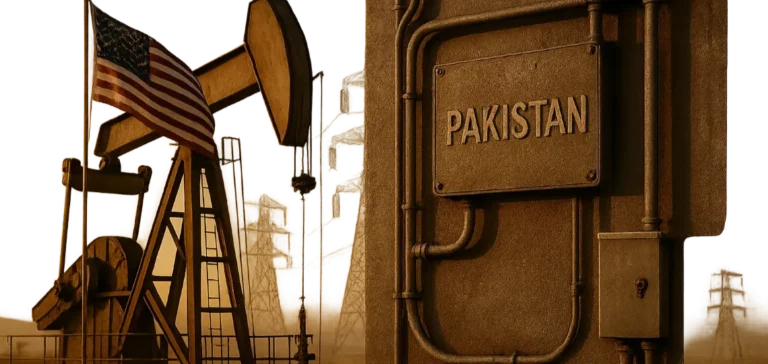The United States has announced its intention to develop targeted economic cooperation with Pakistan in the field of critical minerals and hydrocarbons. On the occasion of Pakistan’s national day, U.S. Secretary of State Marco Rubio stated that Washington aimed to expand its economic partnerships into sectors deemed strategic, particularly natural resources.
Joint mining projects in Balochistan
Pakistani Minister of Commerce Jam Kamal stated that joint ventures were being offered to American companies to exploit mining deposits in the country’s southwest. The Reko Diq deposit, located in Balochistan province, is one of the world’s largest in terms of gold and copper reserves. The site is currently being developed by Barrick Gold Corporation.
A bilateral trade agreement concluded in July, which the Pakistani government presents as a lever for tariff reductions and increased investment, has paved the way for these discussions. However, no specific timeline or investment amounts have been made public so far.
Shifts in diplomatic and security dynamics
This economic rapprochement is part of a normalisation trend between the two countries, following several years of strained relations. Past tensions were notably linked to U.S. policy in Afghanistan and accusations of Pakistani support for certain armed groups. Pakistan has consistently denied these claims.
On Tuesday, the two countries held a bilateral counterterrorism dialogue in Islamabad. The U.S. Department of State welcomed Islamabad’s commitment, particularly in the fight against the Balochistan Liberation Army, which U.S. authorities have designated a foreign terrorist organisation.
Outlook for expanding trade relations
According to Marco Rubio, these discussions reflect a willingness to “foster dynamic economic relations” between the two countries, including in hydrocarbons and so-called strategic minerals. The Department of State also expressed appreciation for Pakistan’s role in regional stability and counterterrorism efforts.
Michael Kugelman, an analyst at Foreign Policy magazine, described the joint statement from the security dialogue as “the most positive” he had heard from Washington and Islamabad in several years. On the Indian side, however, foreign mediation remains firmly excluded from negotiations with Pakistan.






















